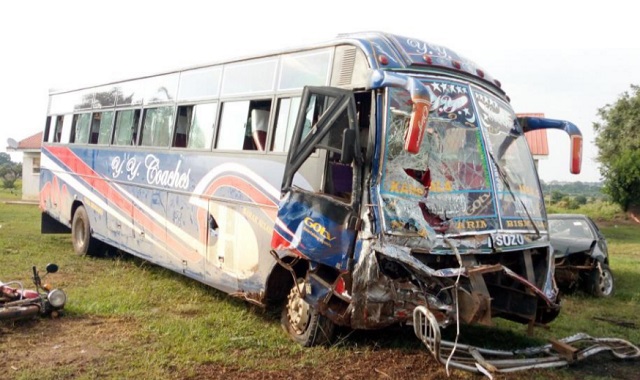
Where is the compensation from insurance companies?
| THE INDEPENDENT | We begin with an extended excerpt from former Minister of Finance, Prof. Ezra Sabiti Suruma’s 2014 book titled `Advancing the Ugandan Economy: A personal Account’.
On page 159, he writes: In some accidents, dozens of people died and many more were injured. Of course the buses carried many more than 100 passengers, even though they had only 62 seats. Passengers sat on top of each other while others travelled standing. When an accident occurred, many of these passengers were thrown all over the place and the ensuing scenes were horrific.
On top of this, it was very difficult to compel the insurance companies to pay. The court system itself was slow and often corrupt. So the bus owner could spend months, or even years, trying to get the insurance company to reimburse for losses. On at least two occasions when KOMESA buses overturned with much loss of life and many injured, the insurance company did not pay for repair of the buses or for the treatment of the injured. Motor vehicle insurance in Uganda appeared to be a racket in which motor vehicle owners regularly paid insurance companies premiums but received nothing in return.
The establishment of the Uganda Insurance Commission under the Ministry of Finance was intended to enforce a code of conduct and ensure that policyholder rights would be honoured. By 2010, however, Uganda had still not succeeded in having motor vehicle owners to perform regular maintenance on their vehicles and insurance companies to perform their duties under the various policies they had sold. The refusal by many insurance companies to meet their contractual obligations placed many bus operators at risk of losing their buses without compensation if and when there was an accident. At the same time, the behavior of many insurance companies subjected many bus passengers to unnecessary risk of injury without just compensation. The requirement to purchase `third party’ insurance stickers, which the police enforced ruthlessly throughout Uganda, was a virtual donation to the insurance companies by the vehicle owners. Consequently, while the speed of public transportation and access to virtually all parts of Uganda increased, the safety of travel remained poor, and the overall administrative structures to enforce safety and insurance compensation did not match the techno
logical advances in that sector. End quote.
Fast-forward to 2019 and a quote from President Yoweri Museveni when he visited the scene of the Aug.18 gory fuel tanker accident that killed over 25 people and injured many more in Kyambura village Rubirizi district.
“What is the role of the Third Party insurance, this is very absolute and many vehicles are on the road without it but they are carrying people,” Museveni told a gathered crowd, “My responsibility is not to compensate accident victims but to offer assistance to the families, compensation must be done by owners of the vehicles involved in accidents.” He said all cars must have comprehensive Motor Third Party insurance.
Many motor vehicles on the road have either Motor Vehicle Third Party Insurance or Motor Comprehensive Insurance. The bigger question is why insurance companies hide and refuse to pay whenever a claim is made. Are the YY Coaches buses that were recently involved in accidents not insured? What compensation has the insurer made? Why should motor vehicle owners continue donating free money to insurance companies as Prof. Suruma describes? The Uganda Insurance Regulatory Authority needs to give the public answers.
****
 The Independent Uganda: You get the Truth we Pay the Price
The Independent Uganda: You get the Truth we Pay the Price




I have always also wondered why we continue to insurance our vechicle yet never compensated…worst of it all police men are on our neck to see that we are insuranced.